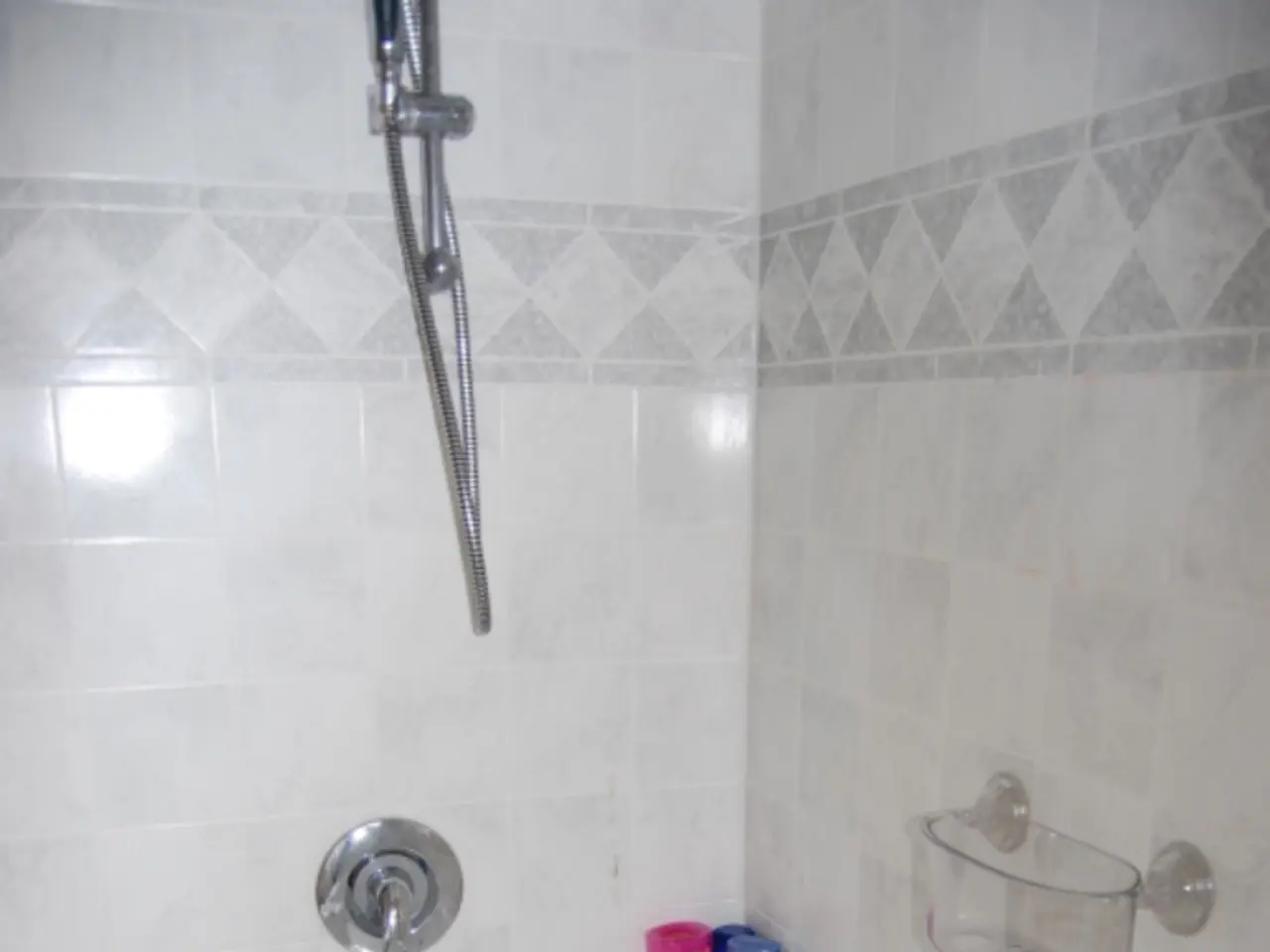Saltwater's Effect on Skin: Advantages, Suggestions, and Insights
Deep seawater, particularly from depths greater than 200 meters, has shown promising benefits for various skin conditions, such as eczema and psoriasis. This is primarily due to its rich mineral content, including magnesium, zinc, potassium, iodine, and calcium [1][2][3].
Magnesium, in particular, plays a significant role in reducing inflammation, soothing redness, and alleviating flare-ups of eczema and psoriasis by calming the skin's inflammatory responses [1][5]. The natural salt content in seawater contributes to gentle cleansing and exfoliation, removing dead skin cells and reducing irritation, while also enhancing skin hydration [2][5].
Minerals like zinc and iodine accelerate the healing of small wounds, cuts, and abrasions associated with these chronic skin conditions, supporting skin repair [3]. Additionally, better blood and lymph circulation, induced by immersion in seawater, helps reduce swelling and facilitates detoxification, indirectly benefiting skin health and reducing symptoms like edema often accompanying inflammatory skin diseases [3].
Therapeutic treatments based on seawater and mineral-rich mud (balneotherapy and thalassotherapy) have been clinically shown to improve chronic skin disorders by enhancing hydration, reducing irritation cycles, and modulating inflammatory responses [4]. These treatments also induce mental relaxation and reduce cortisol levels, contributing to overall symptom relief.
Deep seawater has also been found to reduce antibodies called immunoglobulin E (IgE) that cause an allergic reaction [6]. An in vivo study found that deep sea water helped slow down or block the response of IgE, histamine, and proinflammatory cytokines, which can also cause an allergic reaction [7].
Exfoliating the skin with saltwater may help prevent acne caused by a buildup of dead skin cells. However, it's important to note that salt scrubs may not be suitable for every skin type or more delicate areas of skin, such as the face. The American Academy of Dermatology Association (AAD) recommends precautions when using salt as an exfoliating scrub, such as avoiding scrubbing the face and applying a moisturizer after exfoliating [8].
For those with psoriasis, balneotherapy, which includes bathing in natural saltwater sites such as the Dead Sea or adding sea salts to a bath, may help treat plaque psoriasis and provide benefits for people with psoriatic arthritis [9].
In summary, deep seawater benefits skin conditions such as eczema and psoriasis by providing anti-inflammatory minerals, promoting cleansing and hydration, improving circulation, and supporting immune and stress regulation. These benefits, coupled with potential antibacterial properties, make deep seawater a promising natural treatment option for various skin conditions.
References:
- Deep seawater may help reduce toxic minerals in people with AEDS
- Saltwater may exfoliate the skin, removing dead skin cells from the top layer
- Benefits of balneotherapy for skin health
- Clinical evidence supporting the use of balneotherapy and thalassotherapy for chronic skin disorders
- Magnesium in seawater and its potential benefits for skin health
- Deep sea water reduces IgE antibodies causing allergic reactions
- In vivo study on the effects of deep sea water on IgE, histamine, and proinflammatory cytokines
- AAD recommendations for using salt as an exfoliating scrub
- Balneotherapy for treating psoriasis and psoriatic arthritis
- Magnesium in deep seawater plays a significant role in reducing inflammation and soothing redness, particularly for people suffering from eczema and psoriasis.
- The natural salt content in deep seawater contributes to gentle cleansing and exfoliation, removing dead skin cells, reducing irritation, and enhancing skin hydration, making it beneficial for various skin conditions.
- Minerals like zinc and iodine in deep seawater accelerate the healing of small wounds, cuts, and abrasions associated with chronic skin conditions such as eczema and psoriasis, supporting skin repair.
- Therapeutic treatments based on deep seawater and mineral-rich mud have been clinically proven to improve chronic skin disorders like psoriasis, enhancing hydration, reducing irritation cycles, and modulating inflammatory responses.
- Deep seawater also has potential antibacterial properties and reduces antibodies called immunoglobulin E (IgE) that cause an allergic reaction, offering another natural treatment option for various skin conditions and allergies.




